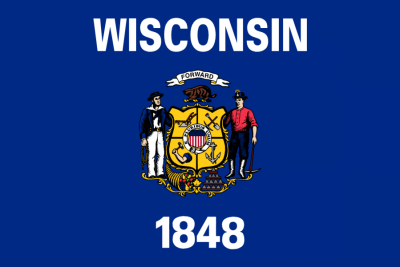Wisconsin

Wisconsin protects the right of publicity both by statute and common law.
Statute
YES.
The right to privacy statute enumerates as an “invasion of privacy” the use “for advertising purposes or for purposes of trade, of the name, portrait or picture of any living person” without written consent. The statute is interpreted in light of the “common law of privacy.”
The Wisconsin privacy statute was passed in 1977, modeled on that of New York. Bogie v. Rosenberg, 705 F.3d 603 (7th Cir. 2013). It is not retroactive. Wisconsin also has a criminal statute that makes invasion of privacy a crime, but its terms are limited to intrusion upon seclusion. Wis. Stat. § 942.08. Another criminal provision makes it a crime to post or publish visual representations of a nude or partially nude individual or a person engaged in sexual conduct without consent. Wis. Stat. § 942.09. The state also makes it a crime to use drones to record or observe a person in a location where there is a reasonable expectation of privacy. Wis. Stat. §942.10
Wis. Stat. § 995.50 Right of Privacy
Hirsch v. S.C. Johnson & Son, Inc., 90 Wis.2d 379 (1979)
Bogie v. Rosenberg, 705 F.3d 603 (7th Cir. 2013)
Common Law - Right of Publicity
YES.
Courts have treated the misappropriation tort akin to a “right of publicity.”
Hirsch v. S.C. Johnson & Son, Inc., 90 Wis.2d 379 (1979)
Common Law - Right of Privacy-Appropriation Tort
YES
Wisconsin has recognized the appropriation tort at common law, but has declined to recognize other forms of a right to privacy at common law. Those other branches of privacy are covered by the state’s privacy statute.
Hirsch v. S.C. Johnson & Son, Inc., 90 Wis.2d 379 (1979)
Post-Mortem Right
NO.
At least one court has held that the statutory right is not descendible and the statute expressly limits actions to the living.
Wis. Stat. § 995.50 Right of Privacy
Heinz v. Frank Lloyd Wright Foundation, 229 U.S.P.Q. 201 (W.D. Wis. 1986)
Limits on Right
Does the law require the plaintiff or identity-holder to be a celebrity or have a commercially valuable identity?
UNCLEAR
The Wisconsin Supreme Court has spoken of the right of publicity/appropriation tort as a property right based in the value of one’s identity, but has not specifically excluded those without a commercially established persona from bringing claims.
Hirsch v. S.C. Johnson & Son, Inc., 90 Wis.2d 379 (1979)
Does the law protect persona?
LIKELY YES
The Wisconsin Supreme Court has included within the protection of one’s identity protection against the use of a nickname.
Hirsch v. S.C. Johnson & Son, Inc., 90 Wis.2d 379 (1979)
Is Liability Limited to Uses on Commercial Advertising or Commercial Speech?
NO
No court in Wisconsin has so limited the right, but some cases suggest the requirement of a “commercial purpose.” The statutory right tracks the Restatement (Second) of Torts, however, suggesting that an infringing use may simply be for the defendant’s advantage, regardless of commerciality.
A federal court has applied the Wisconsin law to enjoin the sale of t-shirts with Billy Joel’s name or likeness on them. Joel v. Various John Does, 499 F. Supp. 791 (E.D. Wis. 1980)]
Bogie v. Rosenberg, 705 F.3d 603 (7th Cir. 2013)
Blodgett v. Shelter Mortg. Co., 2013 WL 495501 (D. Ariz., Feb. 8, 2013) (applying Wisconsin law)
Statutory Defenses
The privacy statute expressly states that it must be interpreted with “due regard for maintaining freedom of communication, privately and through the public media.” The Seventh Circuit and state courts have interpreted the statute as being limited by newsworthiness and incidental use defenses.
Newspapers, Inc. v. Breier, 89 Wis.2d 417 (1979)
Bogie v. Rosenberg, 705 F.3d 603 (7th Cir. 2013)
First Amendment Analysis
Wisconsin sits in the Seventh Circuit which has applied Wisconsin law and suggested that the state’s newsworthiness and public interest exception to its privacy laws is rooted in First Amendment guarantees. The Seventh Circuit has also had occasion under other state right of publicity laws to consider the interplay with the First Amendment, concluding that magazines can publish images from the public domain, but may be limited in publishing images without permission that negatively impact the commercial value of a plaintiff and that were not yet published.
Stayart v. Google, Inc., 710 F.3d 719 (7th Cir. 2013)
Douglass v. Hustler Magazine, Inc., 769 F.2d 1128 (7th Cir. 1985) (applying Illinois law)
Other Commentary
- The Wisconsin Supreme Court has described the appropriation tort as being primarily about the “property interest in the publicity value of one’s name” rather than the “mental interest in being let alone.”
Hirsch v. S.C. Johnson & Son, Inc., 90 Wis.2d 379 (1979)
- A Wisconsin Appellate court has held that nonvisible uses of a person’s name, at least in the context of keyword searching online do not meet the use requirement under Wisconsin’s laws.
Habush v. Cannon, 828 N.W.2d 876 (Wis. Ct. App. 2013)
- One federal court has emphasized that the privacy-based appropriation tort and the right of publicity are distinct under Wisconsin law and particularly for purposes of applying the Communications Decency Act § 230, in which the court allowed for the possibility that the right of publicity was a form of intellectual property that would not be subject to § 230 immunity.
Stayart v. Yahoo!, 651 F. Supp.2d 873 (E.D. Wis. 2009)
- One law review student comment seems to have been very influential on courts and the legislature in interpreting the state’s privacy statute.
Judith Endejan, Comment, The Tort of Misappropriation of Name or Likeness Under Wisconsin’s New Privacy Law, 1978 Wis. L. Rev. 1029.
